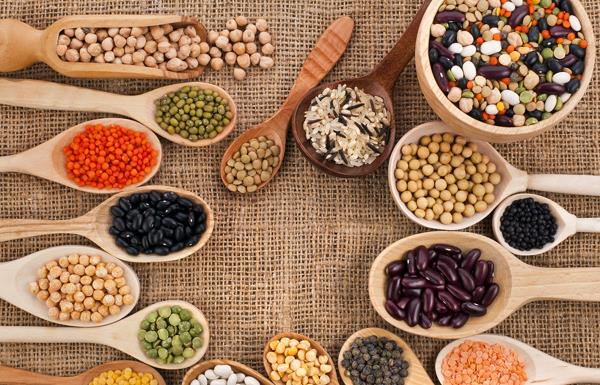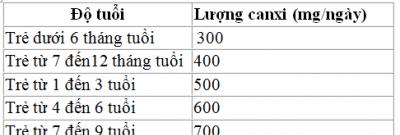Do you know that nutrition has a direct impact on your baby's development, especially when you were a child? MarryBaby tells mothers 6 nutrients and necessary food sources for the baby to develop comprehensively.

The legume family not only contains protein but also folate, which is good for the development of the baby's nervous system
1 / Nutrition for your baby: Protein
Protein is essential for the building and formation of cells, helping the body recover from injury and develop muscle. Meats and fish are the richest sources of protein. However, if any baby does not have a passion for meat, do not worry too much! Legumes, nuts, sunflower seeds or dairy products can also provide protein for your baby's body.
Baby protein requirements also vary with age. From 1-3 years old, mothers should only "load" for children about 13 g of protein per day. From 4-8 years old, babies need 19g of protein per day. Protein level needed for daily activities of babies from 10-13 years old is about 28g. A 15 year old girl will need about 46g while a boy needs about 52g protein per day.
2 / Baby nutrition: Fat
In the mind of many mothers, a healthy diet is often devoid of fat. However, this is not true of your baby's diet, mother! Fat also plays an important role in the development of the nervous system, while accelerating the absorption of some vitamins of the body.
Mother should prioritize the fats from plants such as avocado, olives, peanuts ... or the omega-3 and omega-6 fatty acids found in fatty fish such as salmon, tuna ...

Is it necessary to cut down fat in the diet for a 2 year old baby? The answer is no. Even if you are carefully adopting a low-fat diet for other family members, you don't need to strictly control the amount of fat your baby consumes before 2 years of age.
3 / Baby nutrition: Starch
Starch is one of the main sources of energy for the body, helping children maintain their daily activities. Mothers should feed your baby complex carbohydrates such as whole grains, brown rice, potatoes, brown bread ... rather than simple starch from rice, cakes, candies, white bread ...
4 / Supplementing calcium for your baby
Calcium not only helps babies develop teeth and bones, but also plays a role in metabolizing substances, helping baby's body absorb nutrients from daily foods. Green vegetables such as cabbage, celery ... or seafood are all high in calcium, very good for your baby's body. You can also feed your baby cheese , yogurt or drink formula milk to supplement baby's calcium.

Calcium needs according to the age of the baby
5 / Add iron
Iron helps the body make hemoglobin and moyglobin, two important components of oxygen transport in the blood and muscle. Iron deficiency anemia makes the body tired, weak and uncomfortable.
Mother should add to the meal sources of iron such as beans, bread, beef, seafood, poultry, dark green leafy vegetables. In addition, foods rich in vitamin C such as oranges, lemons, and grapefruit will help the body absorb iron better.

Nutrition for a healthy baby (p.1) Nutrition is one of the factors influencing a baby's development. What to feed the baby and how to eat is the very thing that mothers are very concerned about. The following nutritional basics will help mothers to have a more comprehensive view of the baby's nutrition to give a nutritional menu for the baby ...
6 / Fiber
Not only helps promote the functioning of the digestive organs, but also helps reduce the risk of heart disease and cancer in adulthood. In addition, according to research from the Faculty of Medicine at the University of Southern California, regularly eating carrots or vegetables with orange and green colors can help prevent liver disease, diabetes and reduce the risk of obesity in children. children.















